
More than two fifths of Shropshire’s middle-grade A&E doctors are locum freelancers, but the trust is paying them more and offering them longer contracts to stabilise the troubled service.
Trust executive director Nigel Lee said workforce numbers was the decisive facor in averting the threatened overnight closure at Telford.
He added that the Shrewsbury and Telford Hospitals NHS Trust is working hard on training and recruitment to makes sure the threat does not return.
Another senior SaTH manager told the same meeting that being places in special measures brought extra funding but also extra cost pressures, and admitted the extent of those is currently unknown.
They were speaking at a meeting of the joint Shropshire-Telford Health Overview and Scrutiny Committee.
Opening the meeting, co-chair Andy Burford said: “It goes without saying that emotions have been running pretty high with the recent critical issues.
“A little bit of the sting has been taken out as a result of last week’s announcement about the Princess Royal Hospital, but there are a large number of issues we still need to explore.
“We want to make sure that any lessons that come from that fraught experience are learned.”
Mr Lee, SaTH’s chief operating officer, said: “The factor affecting whether we would close overnight is the workforce, and it would always be about doctor numbers.
“The numbers we have now are better than they were a month ago.
“We will do everything to make sure our workforce is well recruited and over-recruited – not by tens, because they simply aren’t there, but by some.”
Stephen Burrell, one of three Telford and Wrekin councillors on the 12-member committee, asked what the ratio of temporary and permanent staff was.
Mr Lee said 43% of middle-grade doctors in the PRH and Royal Shrewsbury Hospital accident and emergency departments were locum staff.
Mr Lee, who took over as SaTH COO in March this year, admitted there was a risk in using locum doctors so extensively, but said they were taking steps to mitigate that.
“Some of them we have paid more than we have normally done, for an interim period,” he said.
“We’ve also offered them a longer spell of activity. Four or five months, rather than one month, is more attractive as an offer.”
He added that they have permanent middle-grade doctors, made up of full-time and part-time, equivalent to 11.4 full-time doctors. The trust’s aim is to increase that number to 20.
Deirdre Fowler, SaTH’s director of nursing, midwifery and quality, said that being placed in special measures didn’t compromise the trust’s leaders’ “accountability and autonomy”.
She added that they had learner from the examples of the 15 other NHS trusts in special measures.
Councillor Karen Calder, the other co-chair, pointed out that special measures releases extra funding to the trust, but asked “Is there going to be an additional burden as well?”
Ms Fowler said: “From other trusts that have been in special measures, the precedent is that there can be cost pressures.”
Cllr Calder, a member of Shropshire Council, asked when SaTH would know the extent of those.
Ms Fowler said: “To be honest, I don’t know.
“That is something to be negotiated with NHS Improvement. It will not be a bottomless pit.”

 Powys councillors vote to consult on proposed tourism tax
Powys councillors vote to consult on proposed tourism tax
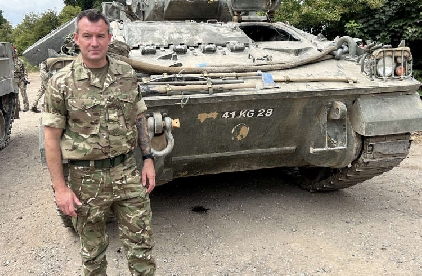 MP urges Prime Minister to keep Armed Forces Covenant Pledge
MP urges Prime Minister to keep Armed Forces Covenant Pledge
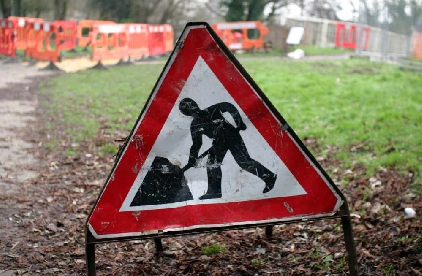 Roadworks planned in Bridgnorth town centre
Roadworks planned in Bridgnorth town centre
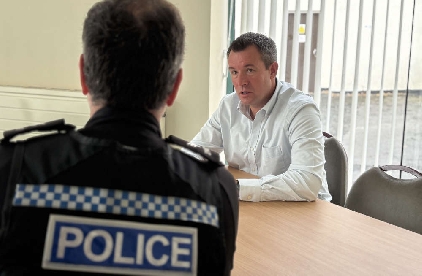 MP calls for fairer funding for rural public services
MP calls for fairer funding for rural public services
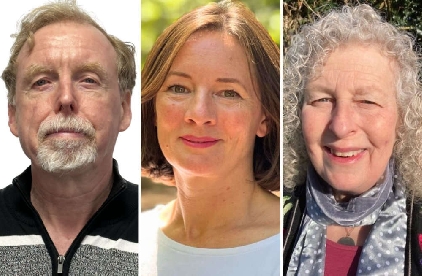 Fury in market towns over £20m ‘snub’ to the rest of Herefordshire
Fury in market towns over £20m ‘snub’ to the rest of Herefordshire
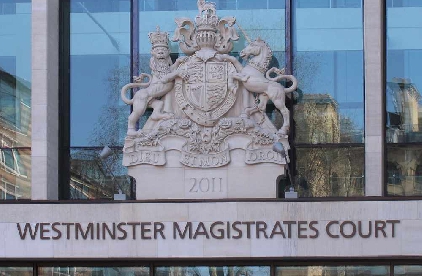 Shropshire woman charged with supporting Hamas
Shropshire woman charged with supporting Hamas
 Revealed: The main roads in Herefordshire prioritised for repairs
Revealed: The main roads in Herefordshire prioritised for repairs
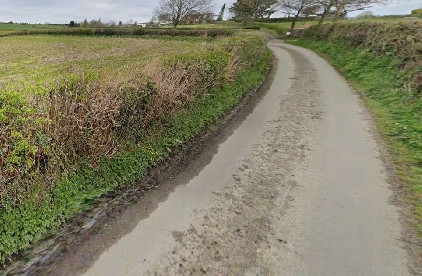 Villagers fustrated over lack of road repairs
Villagers fustrated over lack of road repairs
